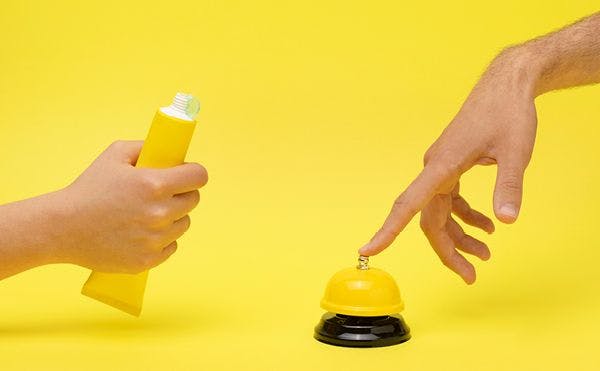Sexual Health 101: HIV & PrEP Myths & Facts
Sexual Health 101: HIV & PrEP Myths & Facts
Today Tuesday 1 December is World AIDS Day, in honour of this awareness day this month's Sexual Health 101 covers everything you need to know about HIV & PrEP. Written by Avril Louise Clarke, Clinical Sexologist and Project Manager of my non-profit The Porn Conversation.
It is also Giving Tuesday today, a global campaign touted as a "global generosity movement unleashing the power of people and organisations to transform their communities and the world". To mark this day Erika Lust Films has donated to UNAIDS - click here if you too would like to donate.
What once used to be a death sentence, is no longer. According to the 2020 Global HIV & AIDS fact sheet by UNAIDS, new HIV infections have reduced by 40% since the peak in 1998. Since the mid 1990s, advancements in treatment for people living with HIV have resulted in huge strides in the sexual health of key populations. Although antiretroviral medications (ART) can't cure HIV, when taken daily and safely on-demand, these medications help people with HIV live longer, healthier lives.
In combination with ART, the more recent introduction of PrEP (pre-exposure prophylaxis) is taking a highly effective preventative approach to HIV. This innovation gives HIV-negative folks a method to reduce the risk of acquiring HIV if they are exposed to the virus. However, PrEP being a relatively new drug on the market since 2012, along with the stigma of HIV and vulnerable communities, there is still a lot of misinformation circulating. To slice through the uncertainty, I'm sharing some facts and common misconceptions about PrEP.
"New HIV infections have reduced by 40% since the peak in 1998"
What is PrEP?
PrEP (pre-exposure prophylaxis) is a preventative pill taken once a day that protects an HIV-negative person from acquiring the HIV infection. There are currently two approved drugs for HIV prevention on the market, Truvada and Descovy.
How does PrEP work?
Since HIV normally takes a few days after exposure to establish itself in the human body, PrEP halts the virus from spreading. According to clinical studies by iPrEx, when PrEP is taken daily, it is up to 99% effective in people who are at risk of getting HIV.
PrEP can also be taken on-demand*, which is particularly helpful for those seeking an intermittent regimen rather than daily. On-demand PrEP is also known as event-based PrEP or PrEP 2-1-1. It involves taking two tablets 2 to 24 hours before engaging in sex, taking a single tablet 24 hours after the first two, and another tablet 24 hours after that. A 2015 study by French IPERGAY found that On-demand PrEP using daily Truvada was shown to be highly effective for gay and bisexual men.
This method has been endorsed by the WHO, the British HIV Association, the European AIDS Clinical Society and the International AIDS Society-USA but has not been approved by the FDA or recommended by the US Centers for Disease Prevention and Control.
Should I take PrEP?
Normally, PrEP is recommended for HIV-negative folks that are considered to be part of a key population who are particularly vulnerable to HIV.
This includes an HIV-negative person who:
- Is sexually active with an HIV-positive partner
- Has anal or vaginal sex with partners who have been diagnosed with an STI (sexually transmitted infection) within the past six months
- Does not use protective barriers such as condoms and have one or more sexual partners whose HIV status is unknown
- Shares needles and syringes to inject drugs
Even if you aren’t considered part of the key population at higher risk for HIV, considering PrEP as a preventative measure is a personal choice. Always discuss with a trusted healthcare provider the options available to you to best look out for your sexual health.
Is PrEP Safe?
PrEP has not only been found to be highly effective, but safe. Many new users of PrEP report little to no side effects, but symptoms such as headache, abdominal pain, and weight loss can occur. These mild side effects typically aren’t long lasting and often are only experienced the first month of taking PrEP.
Is PrEP Safe for Transgender folks?
A study in the journal of Clinical Infectious Diseases found that transgender men and transgender women taking gender-affirming hormones can take PrEP with confidence and without fear of interference in hormone therapy. PrEP was found to be just as effective for those on hormone therapy than those who are not.
PrEP Myths that you need to stop believing
Having the facts straight about PrEP is one thing, but unlearning the myths is equally as important. Not only do myths spread misinformation but they support the stigmas that curb people from taking the right steps to prioritise their sexual health. It’s important not to dismiss a highly effective preventive treatment for HIV based on unfounded assumptions.
Myth #1: PrEP is only for gay men
PrEP can be used by not only gay men, but transgender men and women and heterosexual and bi men and women. Any HIV-negative individual who has multiple sexual partners can benefit from PrEP.
Myth #2: Condoms aren’t needed when taking PrEP
Even when taking PrEP condoms should be continued to be used for extra protection during sex, to reduce the risk of transmission of other sexually transmitted infections (STIs). PrEP does not prevent the transmission of other STIs.
Myth #3: PrEP is only for promiscuous people
The idea that being proactive about your sexual health by taking preventative or protective measures means that one is promiscuous is a harmful belief. No matter the number of partners you have, there is always a risk to having unprotected sex. Safer sex practices are for all.
Myth #4: PrEP is a hassle to take
To begin taking PrEP, you do have to test negative for HIV and remain so. Enrolling in PrEP requires that you get blood tests every three months to check your HIV status. It’s all part of the process of having safer sex. However, the access and availability to PrEP has expanded exponentially over the past few years, even during the pandemic, thanks to the increase in online availability of PrEP and at-home testing.
Myth #5: Once you start taking PrEP, you can’t stop.
Not everyone who begins taking PrEP needs to stay on it for the rest of their life. If you find yourself where you are no longer a part of a key population, such as no longer being sexually active, you can talk with your healthcare provider about stopping this preventative treatment.
"Much like the birth control pill, for PrEP to be effective, it must be taken once a day, every day"
How do I get PrEP?
If you are interested in getting on PrEP, you can request more information from your healthcare provider. Check your country below for more info:
USA: Use the HIV.gov services locator
EU: Visit PrEP in Europe
UK: Visit I Want PrEP Now
Asia & the Pacific: Visit PrEPMAP
For those living outside the EU, the UK, and the US, there continues to be a barrier to the accessibility of PrEP. However, there are organisations such as UNAIDS that are working tirelessly on increasing the availability and accessibility of antiretroviral medications and PrEP to key populations globally.
The Sexual Health 101 column provides information about sexual health related subjects but is not intended to be a substitute for medical or healthcare advice, diagnosis or treatment. Any reader or person with a medical concern should consult with an appropriate doctor or physician.

- D
- DaliaWooow!!! Super valuable and needed information, great content! Thanks!!!
GET A FREE MOVIE
- D
- DaliaWooow!!! Super valuable and needed information, great content! Thanks!!!
Want more?
Get a free movie.
Subscribe to our newsletter to get
a free film by Erika Lust & receive
exclusive updates from Lust Zine.


















